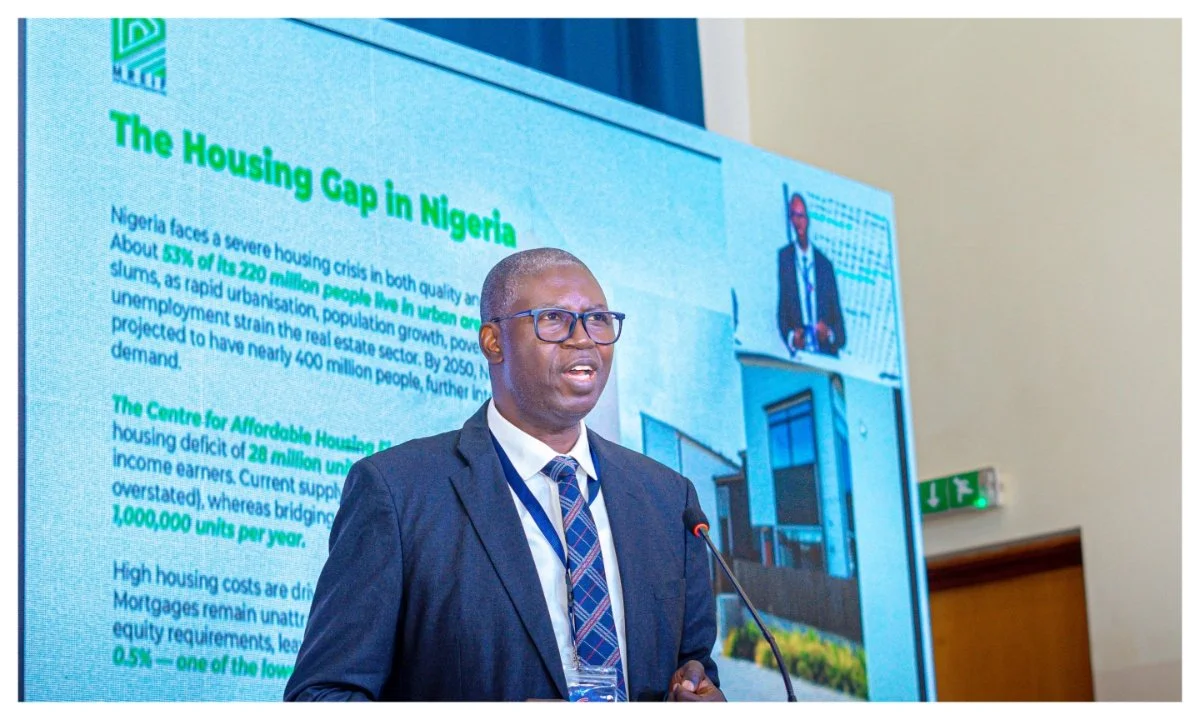Financing Renewed Hope: The MREIF Model Transforming Nigeria’s Housing Market
Financing Renewed Hope: The MREIF Model Transforming Nigeria’s Housing Market
Nigeria’s housing sector has undergone a fundamental shift, moving decisively away from quantifying its enormous deficit to deploying an intelligent, structured financial blueprint designed to ensure sustainable progress. The recent Annual Housing Finance Summit confirmed a coordinated, two-pronged strategy anchored by the launch of the Ministry of Finance Incorporated Real Estate Investment Fund (MREIF) and the complete overhaul of public-sector mortgage eligibility.
This new framework, executed under the Renewed Hope agenda, focuses not just on building homes, but on creating a financially stable, property-owning middle class, thereby stabilizing the broader economy.
Phase 1: De-Risking the Demand Side
For years, the market faced a crippling deadlock: capital was too expensive for developers, and financing was inaccessible for millions of citizens. The government's first strategic intervention, unveiled on the first day of the summit, targets the demand side by securing a massive pool of ready, creditworthy buyers.
The Federal Government Staff Housing Loans Board announced a crucial restructuring, dramatically raising obsolete loan thresholds for civil servants.
Market Impact: This policy instantly converts government workers the economy's bedrock from perpetual tenants into guaranteed homeowners. By creating this predictable pool of offtakers, the government fundamentally de-risks the sales market, providing the certainty private developers require to commit large-scale capital.
Phase 2: Anchoring Supply with Investment Capital
The question of how to finance this required scale of supply was answered on Day Two with the introduction of MREIF, the vehicle engineered to drive the sector's expansion.
MREIF is structured as a powerful Public-Private Partnership (PPP), demonstrating a strategic blend of public policy and commercial discipline. The government provides enabling policies and assets, while the private sector represented by fund managers like ARM Investment Managers brings execution, expertise, and capital rigor.
Crucially, MREIF is framed as a viable investment vehicle designed to yield returns, not a charitable initiative. It acts as a financial catalyst, bridging the gap between raw land and finished, affordable housing units. This blended finance approach is essential for channeling the long-term, patient capital required to sustain mass housing construction.
MOFI’s New Role: The Strategic Asset Manager
A central pillar of the new strategy is the transformation of the Ministry of Finance Incorporated (MOFI). National Coordinator, Mr. Sani Yakubu, confirmed the end of MOFI’s era as a passive holder of government assets.
The institution has transitioned into an aggressive and strategic state asset manager, actively deploying government resources to fuel the national agenda. This shift underpins the MREIF’s mission, connecting technical financial structuring to a broader social goal.
As noted by the fund's advocates, the strategy is rooted in social mobility: "Housing provides equity. Equity provides wealth." By facilitating access to property, the government is using the housing sector as an engine for economic stability and the creation of tangible wealth for millions of Nigerians.
The Execution Phase
The Summit's success was evident in the unprecedented alignment of stakeholders, with pension organizations, property developers, and fintech start-ups exchanging strategies. The silos that previously defined the sector are dissolving.
The blueprint is clear: the government empowers buyers (demand-side de-risking), and the government, alongside the private sector, funds the builders (supply-side financing). With the finance structured, the political will cemented, and the technology ready, MREIF is positioned as the critical mechanism that may finally unlock Nigeria’s perennial housing challenge, paving the way for a truly stable and property-owning middle class

